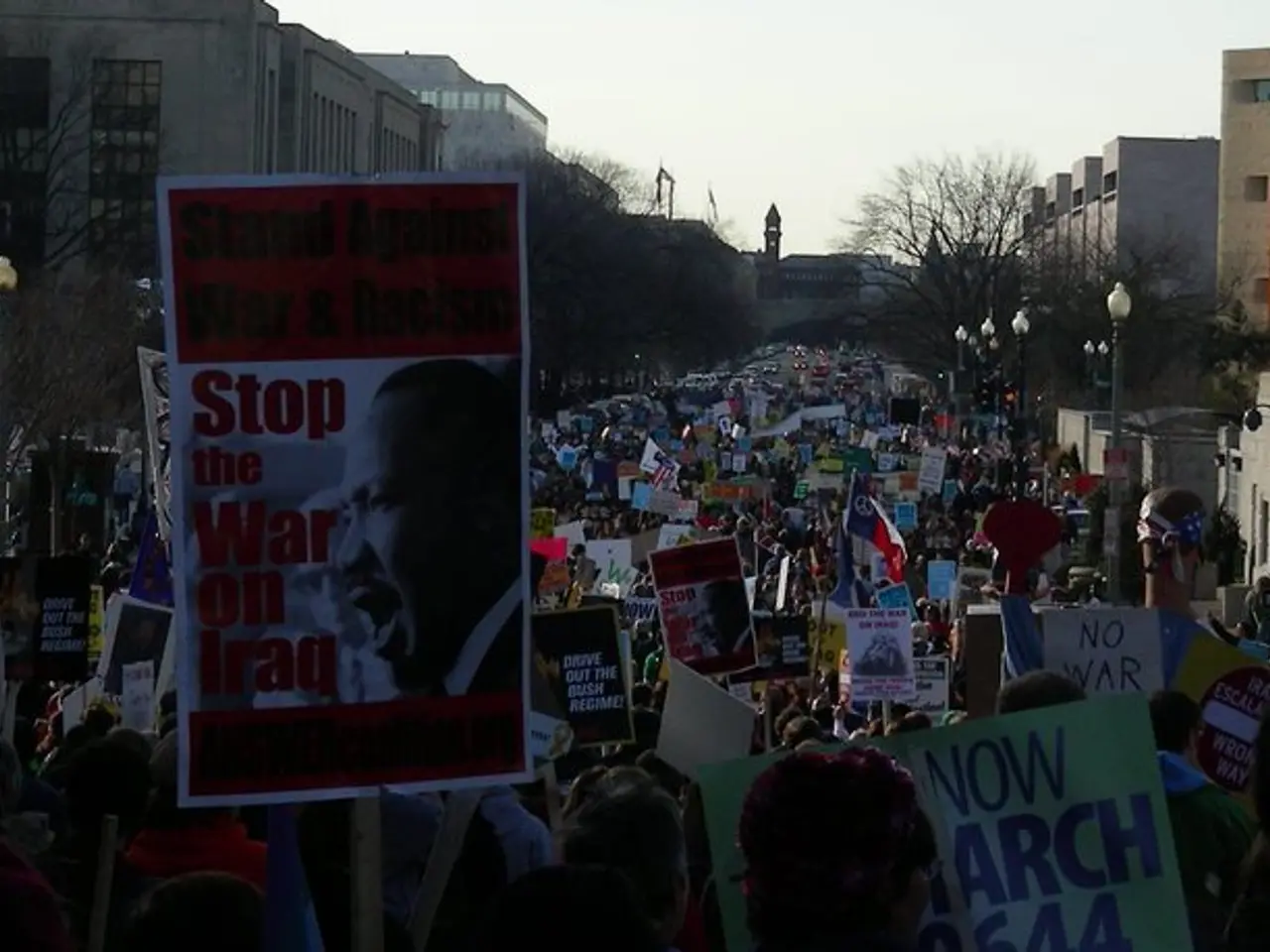Unrest Continues in Serbia: Protests Against President Vučić's Government
Unrest intensifies in Serbia against the current administration
The ongoing protests in Serbia against President Aleksandar Vučić's government have intensified over the past two nights, with clashes between protesters and police reported in more than 30 towns across the country.
Recent Developments
The latest wave of protests was triggered by the shattering of windows and entry into two offices of Vučić's ruling Serbian Progressive Party (SNS) in Novi Sad. Reports suggest that no police were present at one of the targeted SNS buildings when it was stormed. This incident follows a series of violent incidents in other cities, including Vrbas and Bačka Palanka, where pro-government supporters attacked government-critical protesters, with no police intervention.
Causes of the Protests
The protests have been ongoing for over nine months, with their roots stemming from various issues. The collapse of a freshly renovated train station canopy in Novi Sad on November 1, 2024, which killed 16 people, sparked the initial protests. The incident was seen as a symbol of corruption and institutional failure, with independent experts and opposition figures blaming shoddy workmanship and corruption under Vučić's government for the tragedy.
The protests have also been fuelled by democratic backsliding and electoral vulnerability, as Vučić's regime has faced criticism for democratic backsliding since coming to power in 2012. The student-led movement has gained momentum as a result of the government's handling of the situation and accusations of orchestrating a "color revolution."
Recent incidents of police brutality and the government's response have further fueled the protests, with demonstrators demanding early elections and the resignation of officials. Vučić has vowed that authorities will "clean the streets" of protesters, whom he labels as criminals.
Impact and Future Prospects
The unrest has led to numerous injuries and arrests, with Interior Minister Ivica Dacic reporting that five police officers were injured and 14 protesters were arrested. The atmosphere has been chaotic in both cities, according to media reports.
As the protests continue, the future of Vučić's government remains uncertain. The protests have rendered Vučić electorally vulnerable for the first time since coming to power, and the demand for early elections and the resignation of officials continues to grow. The international community has expressed concern over the escalating violence and called for dialogue and a peaceful resolution to the crisis.
- The intensifying clashes between protesters and police in Serbia over the past two nights, as a result of the latest wave of protests triggered by incidents in Novi Sad and other cities, have brought general-news topics into the political forefront.
- As the protests against President Aleksandar Vučić's government in Serbia continue for over nine months, politics have become increasingly intertwined with general-news items, such as allegations of corruption, democratic backsliding, and violations of human rights.








